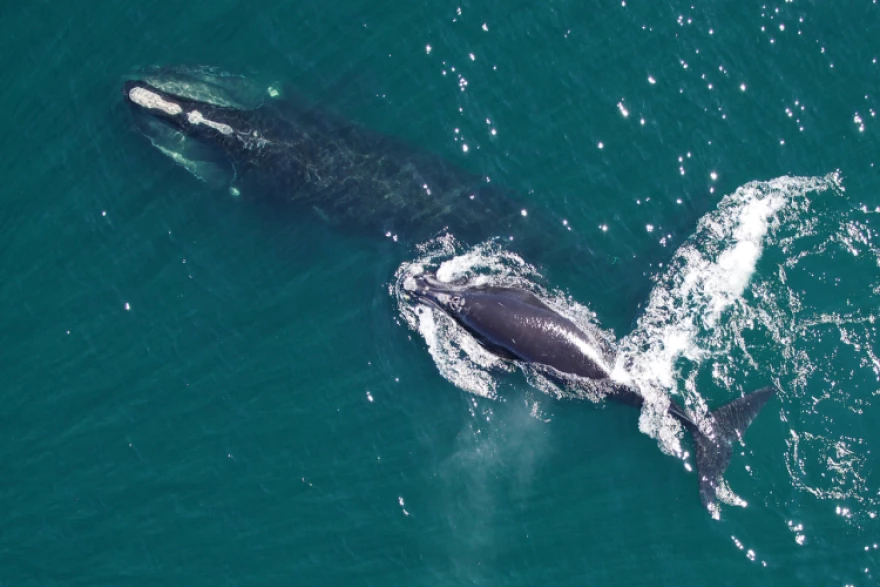TALLAHASSEE — A Florida federal judge Wednesday refused to allow conservation groups to intervene in a lawsuit to help defend a rule aimed at protecting endangered North Atlantic right whales, after the groups expressed concerns about the Trump administration’s commitment to the protections.
U.S. District Judge Charlene Edwards Honeywell’s decision came in a lawsuit filed in March by Florida resident Gerald Eubanks, who piloted his boat, M/V Determination III, from Florida to South Carolina in 2022. He was later fined $14,250 by the National Oceanic and Atmospheric Administration for violating a speed limit designed to protect the whales.
The lawsuit, which names as defendants the agency known as NOAA and U.S. Commerce Secretary Howard Lutnick, challenges the fine and the legitimacy of a speed-limit rule. The 2008 rule limits speeds to 10 knots for vessels that are over 65 feet during certain times and places off the East Coast.
The groups Whale and Dolphin Conservation, Defenders of Wildlife, Conservation Law Foundation and the Center for Biological Diversity filed a motion in March to intervene in the case. The request said the groups have long sought to protect right whales from being struck by vessels and pointed to years of clashes with the federal government about the issue.
“The recent change in presidential administration further suggests that defendants (NOAA and Lutnick) may not adequately represent conservation groups’ interests. … The current (Trump) administration has already staked out its interest in limiting the reach of the ESA (Endangered Species Act) and MMPA (Marine Mammal Protection Act) and in identifying regulations implementing these statutes for suspension, revision or rescission,” the motion said, referring to two key laws. “If it determines that the vessel speed rule is at odds with its current policy objectives, it may not share conservation (groups’) goal of mounting a vigorous legal defense. While defendants have not yet asserted their position, this administration change casts additional doubt on the adequacy of their representation.”
But in her ruling Wednesday, Honeywell wrote that the groups “failed to identify actions by the new presidential administration that indicates a risk of shift in policy.”
“The government seeks to enforce plaintiff’s citation by defending the validity of the vessel speed rule, and conservation groups seek to protect right whales by defending the validity of the same rule,” Honeywell wrote. “Thus, conservation groups’ objective in defending the vessel speed rule is identical to that of the government.”
The NOAA website describes North Atlantic right whales as “one of the world’s most endangered large whale species.” It said about 370 of the whales remain. They migrate each fall from areas such as New England and Canada to calving grounds off Northeast Florida, Georgia and South Carolina.
The lawsuit, which is pending in federal court in Tampa, said Eubanks was fined for traveling about 18 knots for 200 miles.
It contends NOAA did not have authority under federal law to issue the speed-limit rule. It said that if the rule is supported by law, it would demonstrate “rulemaking power so broad and unconstrained as to constitute a delegation of lawmaking power” that would violate the U.S. Constitution.




